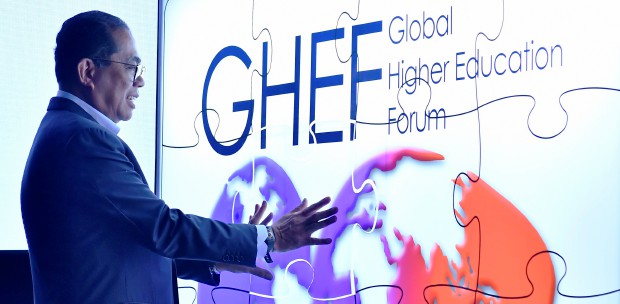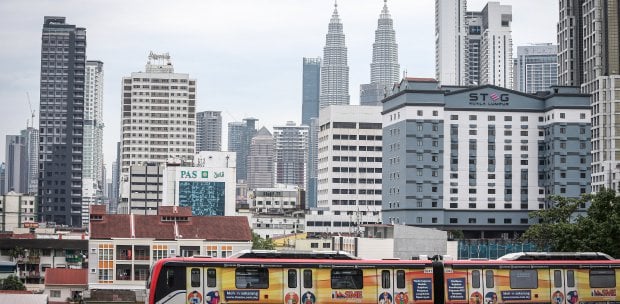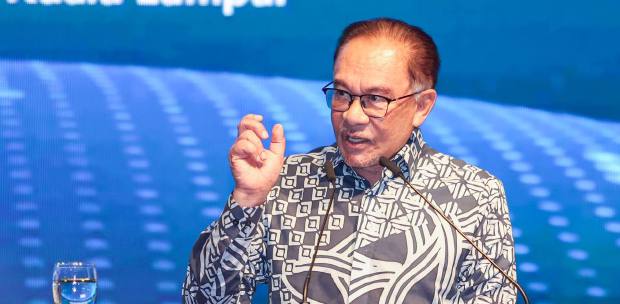HIGHER education institutions (HEIs) have much to offer in terms of ideas and expertise in helping Malaysians get back on their feet as well as keep the country safe post-Covid-19 crisis.
With 20,000 academicians and researchers and of that figure, 3,000 are professors and 4,000 are associate professors, the community has the capacity to help provide solutions to the government in addressing issues arising from the outbreak.
As such, short-term research proposal submissions from lecturers at public and private universities to help the government draft Covid-19 related policies - which is closing today (Apr 30) - is seen as timely.
Vice-chancellor and president of UCSI University Academician Senior Professor Datuk Dr Khalid Yusoff said engaging academics and researchers in providing input would put to reality the idea and need for evidence-based policies, that policies should be adopted and pursued based on facts and figures which have been adequately and properly scrutinised.
"It has to be more than just 'Stay at home' or 'Maintain physical (social) distance'. Economic and social engagement must be gradually and carefully re-activated, soon.
"Whole-of-Community approach needs to be explored further to appeal to the community to feel moved to join in in this war against Covid-19. A systematic and rigorous way needs to be found to make this happen widely," he said, adding that this war against Covid-19 demands as much a technological and economic response as a social, ethical and moral response.
Universiti Putra Malaysia deputy vice-chancellor (Research & Innovation) Professor Datuk Dr Zulkifli Idrus said a good number of academics at the institution are council members of professional bodies as well as active members in government think tanks, and committees.
"With this, the engagement of academia would allow research outputs to be quickly translated into actions and help the country to plan and coordinate recovery efforts, based on the Respond-Recover-Thrive approach.
"The higher education sector is closely linked to the socio-economic facets of the nation. This is aptly described by the quintuple helix innovation model, where the intertwined university-industry-government-public-environment relationship is crucial to solve societal challenges at hand," he said.
Researchers at universities have the facilities to look at the gaps and also to obtain data for better-informed solutions resulting in plausibly better impact to the nation, said Universiti Malaya deputy vice-chancellor (Research and Innovation) Professor Dr Nor Saadah Abd. Rahman.
"In institutions of higher learning, there are experts from various fields with the know-how and access to some technologies that could be put together to find solutions to some of the issues arising from the pandemic.
"For example, many microbiology laboratories in the universities now are helping the ministry of health in screening and testing samples for the coronavirus. At the same time, they are gathering data that would help in the understanding how the virus works which subsequently can help in the development of vaccine and anti-viral agents," she said.
Universiti Teknikal Malaysia Melaka (UTeM) deputy vice-chancellor Professor Dr Zulkifilie Ibrahim said by engaging with the government for research that may contribute to future policies, this will lead to a change in the way universities conduct research, problem solve and apply a more holistic approach to cross-field research.
"As part of Malaysian Technical University Network, UTeM focuses on developing and introducing technologies, innovations and inventions that help to improve society by solving their problems and boosting the domestic economy - whether in agriculture, health, food and beverage, logistics, and entrepreneurship, for example," he said.
Considering the task given, he said universities now find themselves free to reimagine their place in society.
As to the areas the respective universities intend to focus on in light of MOHE's call for research proposals, UCSI would be "very much delighted to participate in areas of economy, education, IT and tourism".
"We have already set-up a 'Post-Covid TaskForce' looking at the areas," said Khalid.
UPM is planning a focus on issues surrounding agriculture and food security revolving on logistics as a pre- and post-harvest technologies.
"There will also be an engineering-medical-sciences-IT team to work on an effective diagnostics approach, and the same approach could be applied to advance public health, zoonotic and anthroponotic research," said Zulkifli.
UTeM has prepared proposals aligned to its niche areas of advanced manufacturing and advanced computing.
Nor Saadah remarked that HEIs can move much faster if agencies share their data and work together in a coordinated and consolidated manner so as not to duplicate work.
The Ministry of Higher Education had recently announced the availability of Covid-19 research grants to lecturers from public universities as well as private higher education institutions with applications to be submitted from Apr 15 to Apr 30.
Each proposal, according to the ministry, could be done individually or in a group of three .The timeframe for the research to be completed is six months.
Each research approved would be allocated at least RM20,000 and should involve 20 main areas of studies including economy, public health, security, tourism, trade, information technology, education and food security.
The proposals would first be evaluated by the Higher Education Department. And the outcome of the studies would then be scrutinised by the ministry's Research Grant Evaluation Committee.





